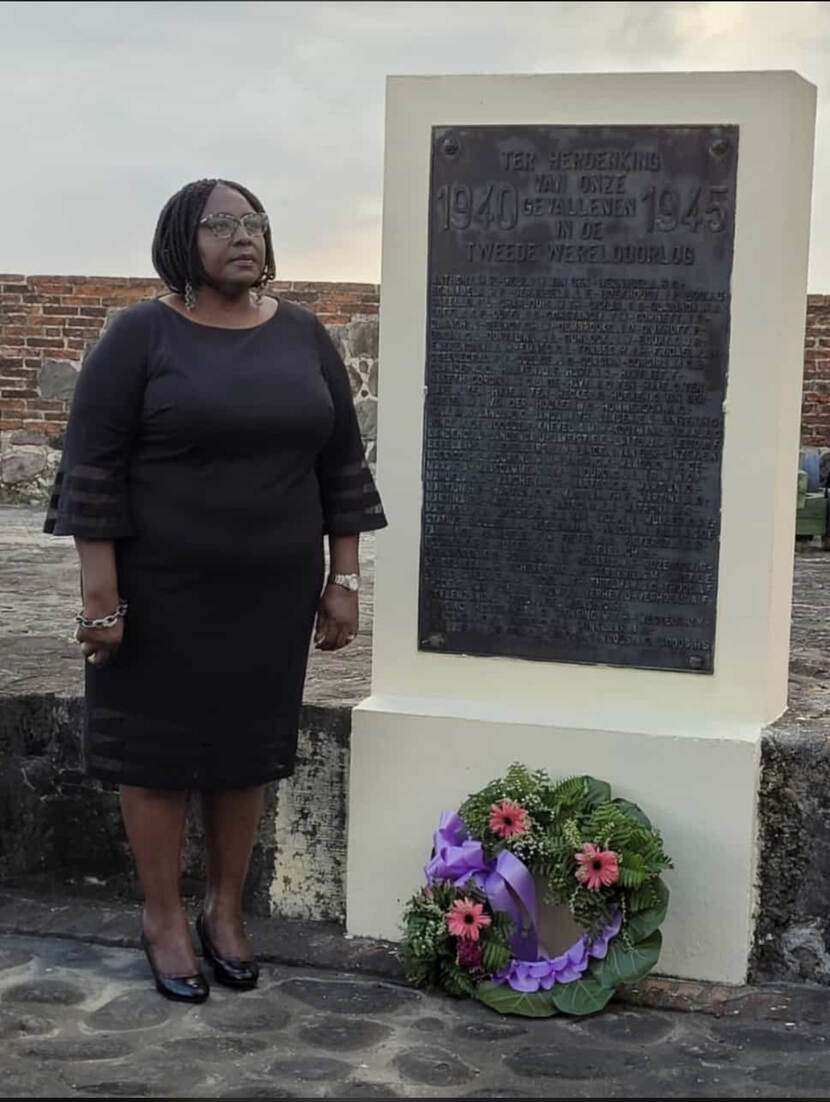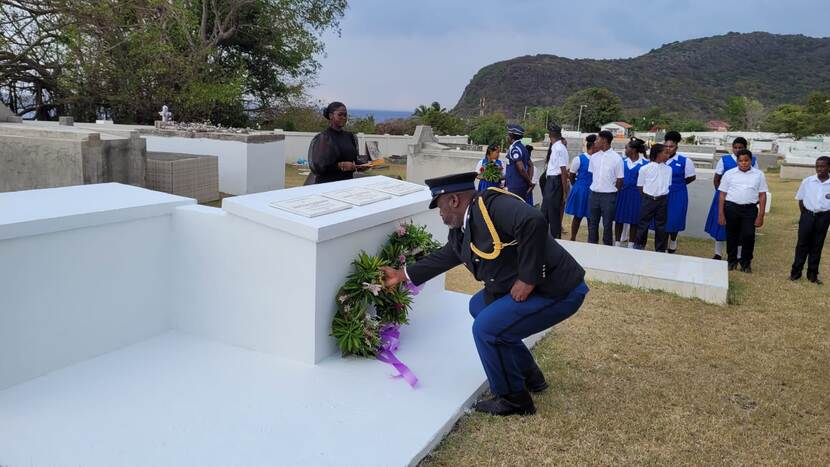Memorial Day Address Government Commissioner, Alida Francis May 4th, 2022, Oranjestad St. Eustatius
As we come together for this Memorial Day ceremony to remember and to honour those who made the ultimate sacrifice to secure our freedom, I cannot help but reflect on the story of Jules Schelvis and how World War II impacted his life.

About eight years ago, a proud Schelvis – 93 years old at the time - stood at the WesterKerk in Amsterdam and recounted his journey to the extermination camp in Sobibor in German-occupied Poland in June 1943.
He vividly recalled the transportation of 62 people in a single railway wagon and the hunger, the exhaustion, and the filth that they were forced to endure.
He could still see the soldiers’ ripping watches off their wrists upon arrival. And he spoke of how he lost his wife Rachel in the ensuing chaos. He never saw her again.
“Which normal human being could have imagined this? How could the world allow us, honest citizens of the Netherlands, to be treated like vermin?” Schelvis asked?
Nearly 80 years after World War II ended, we still struggle to answer these questions honestly.
As we gather today to honour those who died during the war and in other conflicts since, we must ask ourselves, what lessons have we learned?
Henry Fenichel whose happy childhood in The Hague was destroyed by the Nazi occupation in 1940 and was deported to Bergen-Belsen concentration camp in Germany, is worried that we have learned nothing.
“Look at the terrible things that are happening! As human beings, we haven’t learnt the lesson,” Fenichel said two years ago.
If the butchery and savagery in Ukraine right now is anything to go by, Finichel may be right.
The stories of Schelvis and Fenichel could easily be the stories of tens of millions of survivors who were scarred by the war. And today, we remember them.
We also remember the estimated 60 million people who died during World War II. It is a staggering number of casualties. Among them were civilians and soldiers who bravely put their own safety on the line for our sake. We must never forget them. We must never forget the sacrifice they made. And we must never take for granted, the freedom they bought us with their lives.
Unlike the tens of millions in Europe, Statia did not experience the full terrors of the war. Nor have we been victims of violent global conflicts that have erupted since.
There was no merciless bombing of our homes from the skies. No nuclear bombs raining down on us. We were not arrested and taken to our deaths, nor were we forced onto the streets. And, decades later, as is happening in Ukraine, we are not exposed to widespread destruction of our land and heritage, nor are we forced to live in bomb shelters.
But who knows what would have happened had the war dragged on? How different could things have been had brave Statian men like J.C. Van Putten, W.O. Hooker and M. Dembrooke not join others in giving up their lives for us?
Rudyard Kipling, the English short-story writer, poet, and novelist, in his poem, The Old Issue, captured brilliantly the sacrifices these men made: "When you go home, tell them of us and say, for their tomorrow we gave our today," he wrote.
On this Memorial Day, as we remember them for their bravery, selflessness and patriotism, please allow me to remind you of my supplication last year for us as Statians to live in the legacy of these men.
Let us not look away while there is injustice against our brothers and sisters; let us not justify nepotism; or brush aside bias or normalize hurtful and destructive language; and let us not turn our backs on those who feel abandoned or unsupported.
Instead, let us go to war in defense of values such as honesty, integrity, and fortitude of character. Let us be unwavering in our support of what we know is right.
On this Memorial Day, let us a demonstrate that we have indeed learnt our lessons by renewing our faith in each other; in our country; in our Statia.
